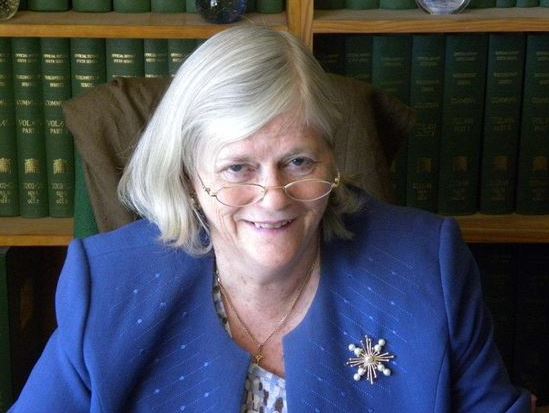Ann Widdecombe is a significant figure in British political history, known for her steadfast convictions, sharp wit, and no-nonsense approach. Over her decades-long career, she has made a name for herself not just in politics but also in literature and media. Born on October 4, 1947, in Bath, Somerset, Widdecombe’s influence extends far beyond her years in Parliament, leaving a lasting impression on British political and cultural life.
Early Life and Political Beginnings
Ann Noreen Widdecombe grew up in a conservative, religious family, which laid the foundation for many of her views later in life. After studying Latin at the University of Birmingham and completing postgraduate studies in politics and economics at Lady Margaret Hall, Oxford, Widdecombe embarked on a career in politics.
She became a Conservative MP in 1987, representing Maidstone and later Maidstone and The Weald, a seat she held until her retirement from Parliament in 2010. Her no-nonsense style, combined with her clear conservative principles, quickly made her a prominent figure within the Conservative Party.
Ministerial Roles and Shadow Cabinet
Widdecombe’s political career is marked by her tough stance on law and order. From 1995 to 1997, she served as Minister of State for Prisons under John Major’s government. During this time, she became known for her controversial and unyielding views on penal policy, including supporting the reintroduction of hard labor for prisoners and opposing reforms to soften prison conditions. Her approach to law and order gained her respect among conservatives, while others found her views too harsh.
After the Conservative Party lost power in 1997, Widdecombe became a significant figure in opposition. From 1999 to 2001, she served as Shadow Home Secretary, where she continued to advocate for tough crime policies, further cementing her reputation as a hardliner on law enforcement and crime prevention.
Social Conservatism and Religious Convictions
One of the most defining aspects of Ann Widdecombe’s career has been her unwavering social conservatism, shaped by her religious beliefs. A devout Roman Catholic, Widdecombe converted from the Church of England to Catholicism in 1993, and her faith played a significant role in her political stances.
She has been a staunch opponent of abortion, euthanasia, and same-sex marriage, often attracting controversy for her views. While many saw her positions as outdated, Widdecombe remained unapologetic, arguing that her beliefs were deeply rooted in her faith and moral principles.
Media Career and Literary Success
After retiring from Westminster, Widdecombe ventured into the world of television, gaining unexpected fame on shows like Strictly Come Dancing in 2010. Though not a natural dancer, her willingness to poke fun at herself and her spirited performances won her a new following. She also appeared in shows like Celebrity Big Brother and documentaries that explored her religious and moral beliefs.
In addition to her media presence, Widdecombe has authored several novels and works of non-fiction. Her novels, including The Clematis Tree and Father Figure, reflect her interest in morality and the human condition. She has also written about her political and religious convictions, offering readers insight into her personal philosophy.
Return to Politics: Brexit and the European Parliament
Though she left Westminster in 2010, Widdecombe briefly returned to politics in 2019, joining the Brexit Party to advocate for Britain’s departure from the European Union. She was elected as a Member of the European Parliament (MEP) and served until the UK’s formal exit from the EU in early 2020.
During this time, Widdecombe’s speeches often focused on sovereignty and the need for Britain to regain control of its laws and borders. Her decision to return to frontline politics showed that she remained committed to her political ideals even after decades in public life.
Personal Life
Despite her public persona, Widdecombe has always kept her personal life private. She has never married, often referring to herself as a “lifelong spinster,” and has no children. Her religious convictions have been central to her personal and professional life, guiding many of her decisions in both politics and media.
Legacy
Ann Widdecombe’s legacy is one of unwavering commitment to her beliefs. Whether one agrees with her views or not, she has always remained true to her principles, often standing against the tide of popular opinion. Her sharp wit, distinctive style, and strong sense of morality have made her a significant and memorable figure in British political and cultural history. From her time in Parliament to her television appearances and literary career, Widdecombe has continually reinvented herself while staying grounded in her core values.




